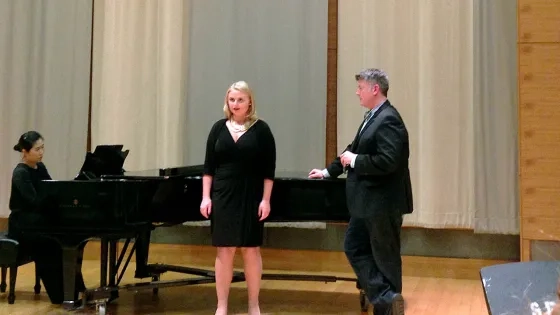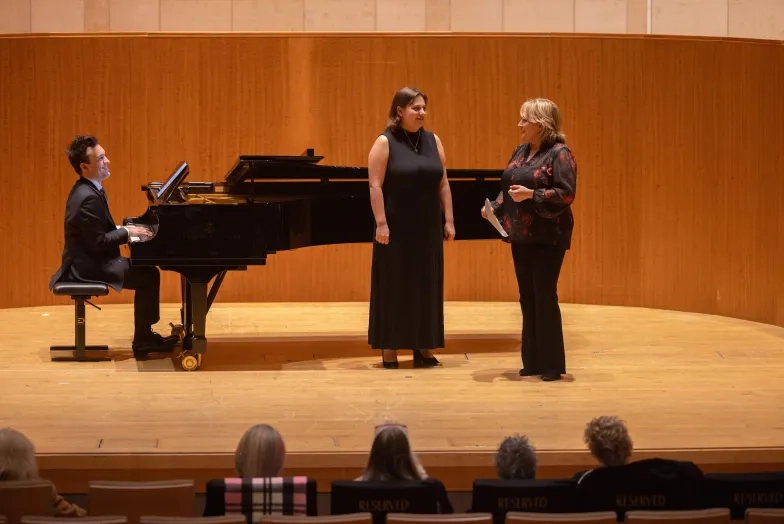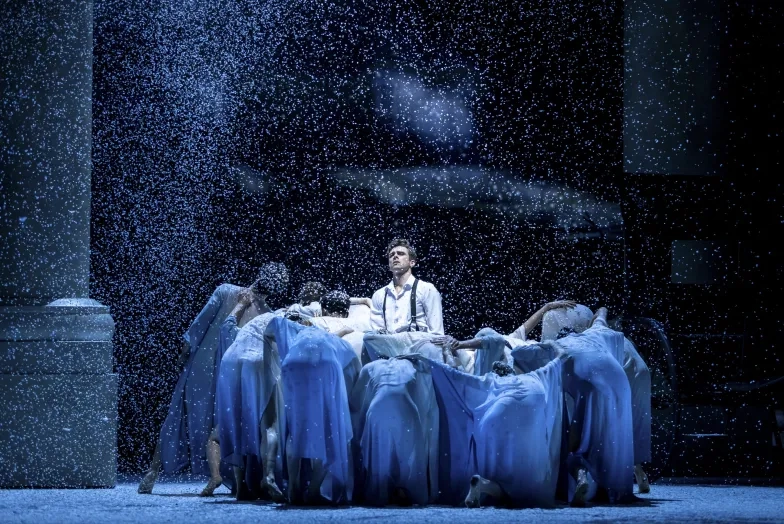Alumnus Ryan Taylor Holds Mock Auditions at SFCM
SFCM alumnus Ryan Taylor, President and General Director of Minnesota Opera, came to the Conservatory this month to hold a mock audition for the opera department, followed by a Q&A session, giving students the opportunity to experience firsthand the audition process that many will go on to take part in. The workshop offered students valuable insight into the world of opera auditions as he worked hands-on with six selected students.
An important takeaway from the workshop was Taylor’s pressing of the “variety of style” he looks for in young artists. He also noted that it is best to do research about an opera company before auditioning. For example, the Minnesota Opera does a new work every year, so he makes sure to look for interest and experience with contemporary music. Additionally, he warned students against burying excerpts on audition repertoire lists — chances are difficult repertoire will be asked for if listed. Speaking to practical steps for students now, Taylor recommended auditioning for the Merola Opera Program due to its heavy emphasis on career preparation and intensive learning environment.
Soprano Katelyn Lewis started off the evening by performing the virtuosic “Der Hölle Rache” from Mozart’s The Magic Flute. Taylor immediately told her that she “just won the match,” and then explored how to make it even better. He recommended writing active words like “tickles,” “scolds,” and “manipulates” in the part to hit at the heart of the aria’s message and let technique take over. He then recommended doing the opposite of what the character does to give the performance a new edge, the severity of the aria speaking for itself. When Lewis experimented with these techniques, there was an immediately noticeable difference in her sound and body language that brought freshness to the performance.
Continuing the theme of using experimentation to free up an aria, Taylor worked with soprano Melissa McCann on the aria “È Strano / Ah, Fors'è Lui” from Verdi’s La traviata. Pointing out that “specificity is going to matter,” he worked on the timing of the climax word “follie.” After working with Taylor, McCann commented, “[he] was truly inspirational. He helped me get into character in new ways that made the music even more expressive.”



